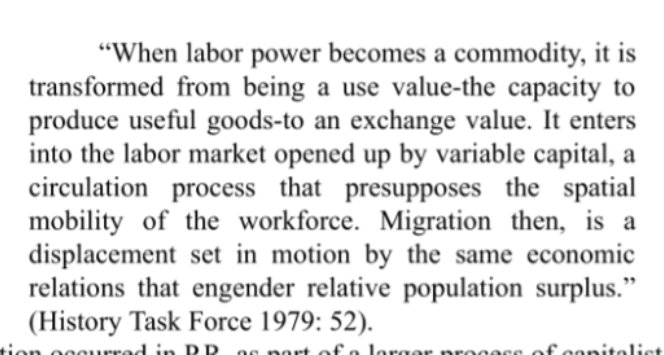this post was submitted on 17 Oct 2023
43 points (100.0% liked)
marxism
3670 readers
1 users here now
For the study of Marxism, and all the tendencies that fall beneath it.
Read Lenin.
Resources below are from r/communism101. Post suggestions for better resources and we'll update them.
Study Guides
- Basic Marxism-Leninism Study Plan
- Debunking Anti-Communism Masterpost
- Beginner's Guide to Marxism (marxists.org)
- A Reading Guide (marx2mao.com) (mirror)
- Topical Study Guide (marxistleninist.wordpress.com)
Explanations
- Kapitalism 101 on political economy
- Marxist Philosophy understanding DiaMat
- Reading Marx's Capital with David Harvey
Libraries
- Marxists.org largest Marxist library
- Red Stars Publishers Library specialized on Marxist-Leninist literature. Book titles are links to free PDF copies
- Marx2Mao.com another popular library (mirror)
- BannedThought.net collection of revolutionary publications
- The Collected Works of Marx and Engels torrentable file of all known writings of Marx and Engels
- The Prolewiki library a collection of revolutionary publications
- Comrades Library has a small but growing collection of rare sovietology books
Bookstores
Book PDFs
founded 4 years ago
MODERATORS
you are viewing a single comment's thread
view the rest of the comments
view the rest of the comments

If something, be it labor or a product of some sort, has “use value”, that means that the benefit it provides is tangible and that said benefit is enjoyed mostly by the person who possesses the product or does the work that has value. An example of a “use value” product could be the home that a person lives in, while an example of “use value” labor could be the act of making a meal for oneself. In both of these cases, the commodity, that being the house in the former and the person’s work in the latter, are beneficial to the person possessing or producing them specifically because they are being directly used by that person for a clear purpose like shelter or nutrition.
On the other hand, if a commodity has “exchange value”, that means it’s primary benefit is found in the possibility that it can be exchanged for something else, which is generally money under capitalism, rather than being directly beneficial itself. A house owned by a landlord who lives elsewhere is a good example of a commodity that has “exchange value” because its value to the landlord comes from their ability to rent it to someone who needs housing in exchange for money, since the landlord isn’t using it to house themselves. The topic of the above quote, “exchange value” labor, works somewhat similarly. Contrary to “use value” labor, which is performed to provide something useful for the person performing it, “exchange value” labor is performed for the sake of being traded for something of use to the person performing it. For instance, a cook working in a restaurant is performing “exchange value” labor, because they’re making meals in exchange for receiving the money they’ll use to satisfy their own needs from the restaurant’s owner rather than making meals for their own consumption. In other words, they’re giving, or “selling”, the value that comes from their labor to someone else.
In the quote, Marx is saying that, because “exchange value” labor has become much more prominent than “use value” labor, people have mostly stopped being able to work solely for their own sustenance. Since labor has become a commodity similar to any other product, the benefits and opportunities associated with “use value” labor have been stifled by capitalists, or the people who control the resources which humans need to survive, because capitalists stand to gain more from using labor for its newfound purpose by purchasing the labor of others, the fruits of which are sold back to labourers as consumer products, in exchange for offering workers access to said resources in the form of money. The fact that working to provide for oneself has become untenable because of capitalism has made people reliant on other people or outside institutions to survive, compelling workers to migrate in order to be in proximity to these external forces, since this proximity allows them to offer their labor to said forces more easily. These migrations can take the form of people leaving their homes to go to their places of work, as explained by ChaosMaterialist, but it also takes the form of people congregating in areas where they will have more opportunities to sell their labor, often large cities, or, more recently, foreign countries where there is a higher demand for their skill set than there is in the country they originate from.
In short, capitalism and its transformation of labor into something performed for the benefit of capitalists as opposed to the benefit of oneself have caused the massive amount of urbanization and immigration we see across the globe today.
Being really being pedantic but a commodity is only something which is sold and produced for the purpose of receiving money.
shit and blood
Holy fuck I did NOT plan on making my comment this long but it might lead other Hexbears to be tricked into thinking I’m smart so it’s all good